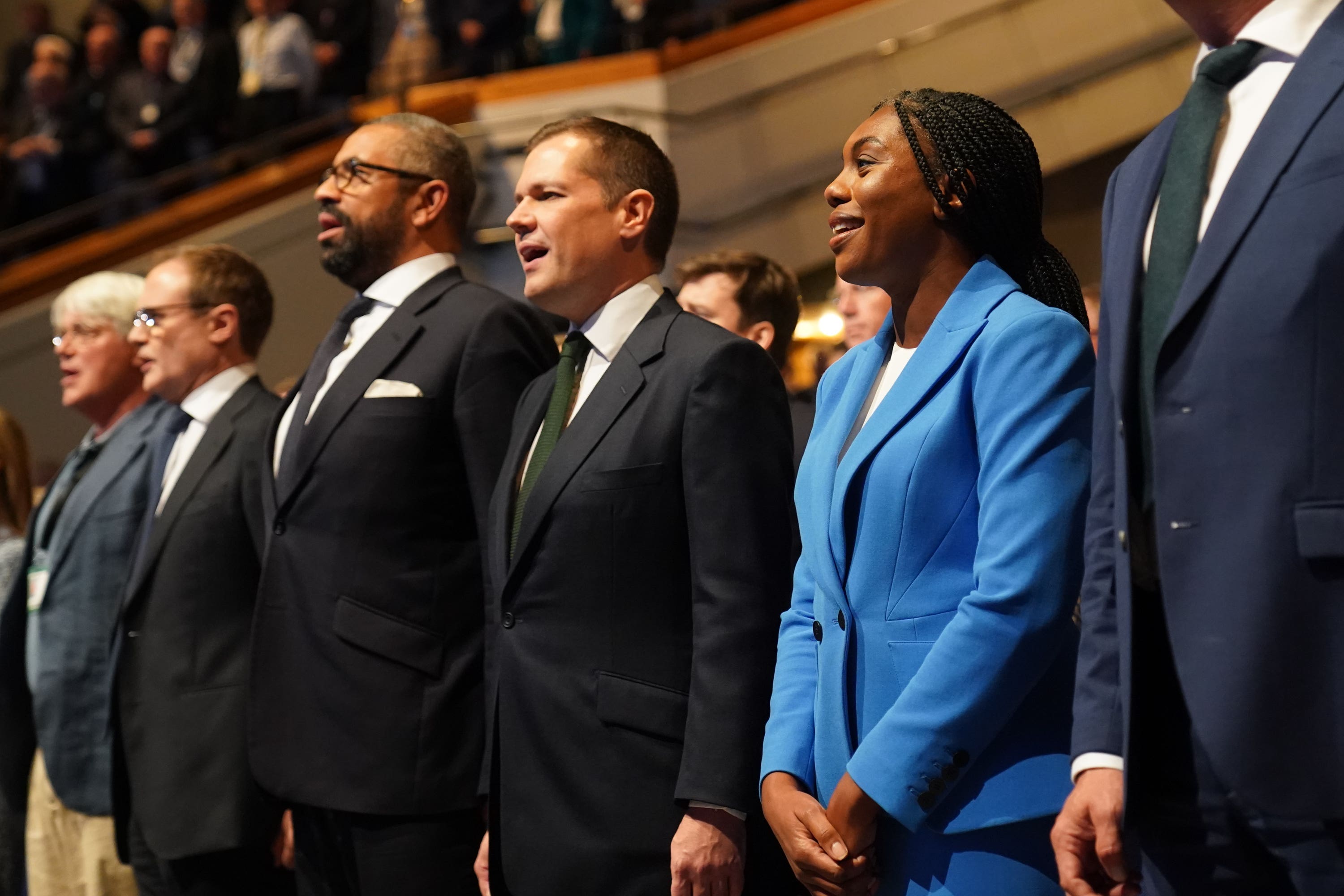The not-so-Cleverly scheming backfired – the Tories are now at war (and all at sea)
In a faux pas bordering on farce, the opposition finds itself faced with a choice between two hard right-wingers differing only in the extent of their extremism, writes Sean O’Grady


If you thought/feared/hoped that the British Conservative Party had reached the nadir in its fortunes at the general election in June – think again. The leadership election has produced an unfortunate choice for the party membership, who must now decide on who will be the next leader of the opposition and architect of their restoration.
It is a battle between Robert Jenrick and Kemi Badenoch, the two least attractive personalities involved – and a choice between two hard right-wingers differing only in the extent of their extremism.
Now, this would be regrettable and a disservice to the party members (let alone the country) who might have preferred a more centrist, even liberal Tory to be on the final pairing. It could, though, be excused and grudgingly accepted as the inevitable conscience of the party’s gradual slide towards nationalist populism since the EU referendum in 2016.
But, clear as that shift to the right has been, it hasn’t hit the parliamentary party so hard that the older One Nation tradition has been reduced to a rump. In fact, the combined votes of the more centrist candidates over the run of polling (James Cleverly, Tom Tugendhat, Mel Stride) roughly matched the support given to the more right-leaning representatives (Jenrick, Badenoch and Priti Patel).
Indeed, Cleverly was clearly in the lead in the penultimate round of MPs’ voting. Then, if the reports are to be believed, some too-clever-by-half tactical voting by the Tugendhat supporters (and others) to eliminate whichever of Badenoch and Jenrick they disliked most by “lending” their votes to the other went horribly wrong. And they ended up where they are now: in a right vs right final round.
It is, then, more cock-up than conspiracy – but it sadly demonstrates that the now denuded Conservative parliamentary party, once known as the most sophisticated electorate in the world, cannot even plot properly these days. And they used to be so good at it.
When Boris Johnson, perhaps the ultimate schemer of modern times, was running for leader and PM in 2019, he and his campaign manager, Gavin Williamson, were accused of manipulating the voting so successfully that they managed to kick his most potent rival – Michael Gove – out of the running in the last round. Supposedly, Johnson’s camp instructed a judicious chunk of his supporters to vote for Jeremy Hunt instead (though the man himself denied knowing anything about such dark arts).
Hunt, a nice man, but a Remainer with more limited appeal to the grassroots, was duly defeated by Johnson. Job done.
Likewise, Margaret Thatcher benefitted from the wily skills of her campaign chief, Airey Neave, in 1975. Fifty years ago to the day, 10 October 1974, the then Tory leader and former prime minister Ted Heath lost yet another general election – and the MPs wanted him out. Thatcher emerged as the challenger candidate and Neave cleverly argued with his colleagues that she had no chance of defeating Ted (this was in the days when the incumbent was normally safe).
They were told they could use a vote for Thatcher as a protest – or, if they were really disgruntled, as a way of opening things up so that a more palatable centrist (such as Willie Whitelaw) could replace Ted, but with similar policies. Instead, when the leadership election eventually arrived in February 1975, Thatcher scored so well on the fist round that she forced Heath’s resignation and in due course, won. The rest, as they say, is Thatcherism.
Poor Cleverly didn’t have a Williamson or a Neave at his disposal, but Grant Shapps. It might be unfair to blame him for the debacle, but, he was, shall we say, present – if not involved.
But such dark arts are, it seems, no longer practised well in the Conservative Party. And there were already signs of incompetence: after the Brexit referendum and David Cameron’s fall (when the leadership was Johnson’s for the taking), Gove infamously stabbed Johnson “in the front” by declaring his own candidacy immediately before Johnson launched his bid. Johnson has said of the matter: “What I resented most was the sheer stupidity of what he had done.” And so, rather accidentally, eventually Theresa May, a Remainer, became party leader and prime minister – unopposed.
A political party that cannot even plot its own future, in every sense, is a poor candidate to lead the country. A certain amount of guile, or native cunning, is necessary in a leader to succeed both in their own interests and to promote those of the nation.
At the moment, those vying to be next Tory party leader seem to lack those essential skills and the nation cannot be impressed. The One Nation faction will never be able to accept the outcome of such a botched election process and the resentments will fester.
For the Tories, whichever of Badenoch or Jenrick prevails, things are bound to get (even) worse for their party.






Join our commenting forum
Join thought-provoking conversations, follow other Independent readers and see their replies
Comments